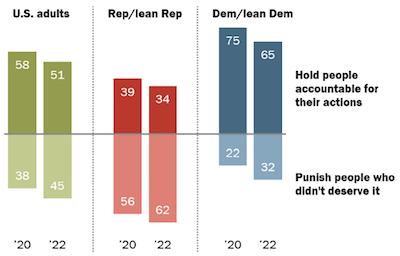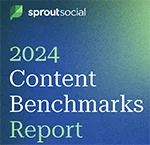The term “cancel culture” has become incredibly popular—and increasingly politicized—in recent years. The phrase—loosely defined as the practice of publicly shaming people on social media for posting opinions or content that might be considered offensive—is now common fodder for politicians and an easy topic for coverage among both traditional and digital media outlets. Unfortunately, many of us fail to agree on what the concept actually means.
According to a recent study released by the Pew Research Center, while more Americans are now aware of what cancel culture is, a partisan divide exists on what role it plays: namely, whether calling people out for the things they say on social media is a means of holding them accountable or if it’s a form of unjust punishment.
According to Pew’s survey, nearly two-thirds of Americans (61 percent) said they’re aware of the phrase “cancel culture,” a 17-percentage point increase compared to the less than half (44 percent) who said the same when asked about the term during a previous Pew survey a year ago.
Overall, slightly more than half (51 percent) of Americans said they believe calling people out publicly is more likely to hold them accountable for the things they say online, while 45 percent think the practice is more likely to punish people who don’t deserve it.
When broken out by party affiliation, Democrats are nearly twice as likely to see “cancel culture” as a means of holding people accountable for posting content that might be considered offensive (65 percent), compared to only about a third (34 percent) of Republicans who agree. Republicans, conversely, are generally more likely to view the practice as a form of punishing people who don’t deserve it (62 percent), compared to less than a third (32 percent) of Democrats who hold this view.
Overall, the share of adults who now believe this type of behavior is effective at holding people accountable has decreased by seven percentage points since 2020, while the share who say calling people out is more likely to unjustly punish those who didn’t deserve it has gone up by seven percentage points.
Interestingly, the number of Democrats who now see this practice as unjust punishment has risen by 10 points. Meanwhile, the number of Republicans who view calling out others on social media as a form of unnecessary punishment has increased by six percent.
The Pew study found that women are more likely than men to view the practice of calling out people on social media as a means of holding them accountable (56 percent vs. 45 percent), while men are more likely to say this behavior unfairly punishes people (52 percent vs. 38 percent). A majority of white Americans polled said they believe this behavior generally punishes people who don’t deserve it (51 percent), while Black Americans (71 percent), Hispanics (61 percent) and Asians (61 percent) largely see it as a form of accountability.
Research for Pew’s study was based on a survey of an undisclosed number of U.S. adults and was conducted between April 25 and May 1.



 What if companies could harness the fury of online outrage into a force for good? This is precisely where companies can start turning the trolls into brand champions.
What if companies could harness the fury of online outrage into a force for good? This is precisely where companies can start turning the trolls into brand champions. Audiences interacted with brand content far more often on Facebook and Instagram in 2023 than they did via X (formerly Twitter), according to a report that tracked engagement trends across different social networks.
Audiences interacted with brand content far more often on Facebook and Instagram in 2023 than they did via X (formerly Twitter), according to a report that tracked engagement trends across different social networks. Can public relations help counteract the dissension fostered by the power of digital platforms to spread hate, fear and confusion?
Can public relations help counteract the dissension fostered by the power of digital platforms to spread hate, fear and confusion? The number of Americans who get their news from TikTok has quadrupled in the last three years, according to a recent Pew Research Center report.
The number of Americans who get their news from TikTok has quadrupled in the last three years, according to a recent Pew Research Center report.


 Have a comment? Send it to
Have a comment? Send it to 
Jun. 10, 2022, by Joe Honick
This sounds as if Pew had some pollsters with spare time talking to lazy voters at a time when too much is left for the election mix-masters for such opinions. The expected vulgarity still to fill these places has hardly begun. "Calling out people" is much too polite a term for what seems to be on the menu. Between the J6 hearings and FOX News Carlson selling Putin propaganda, PR firms serving the right may well be holding back their worst.